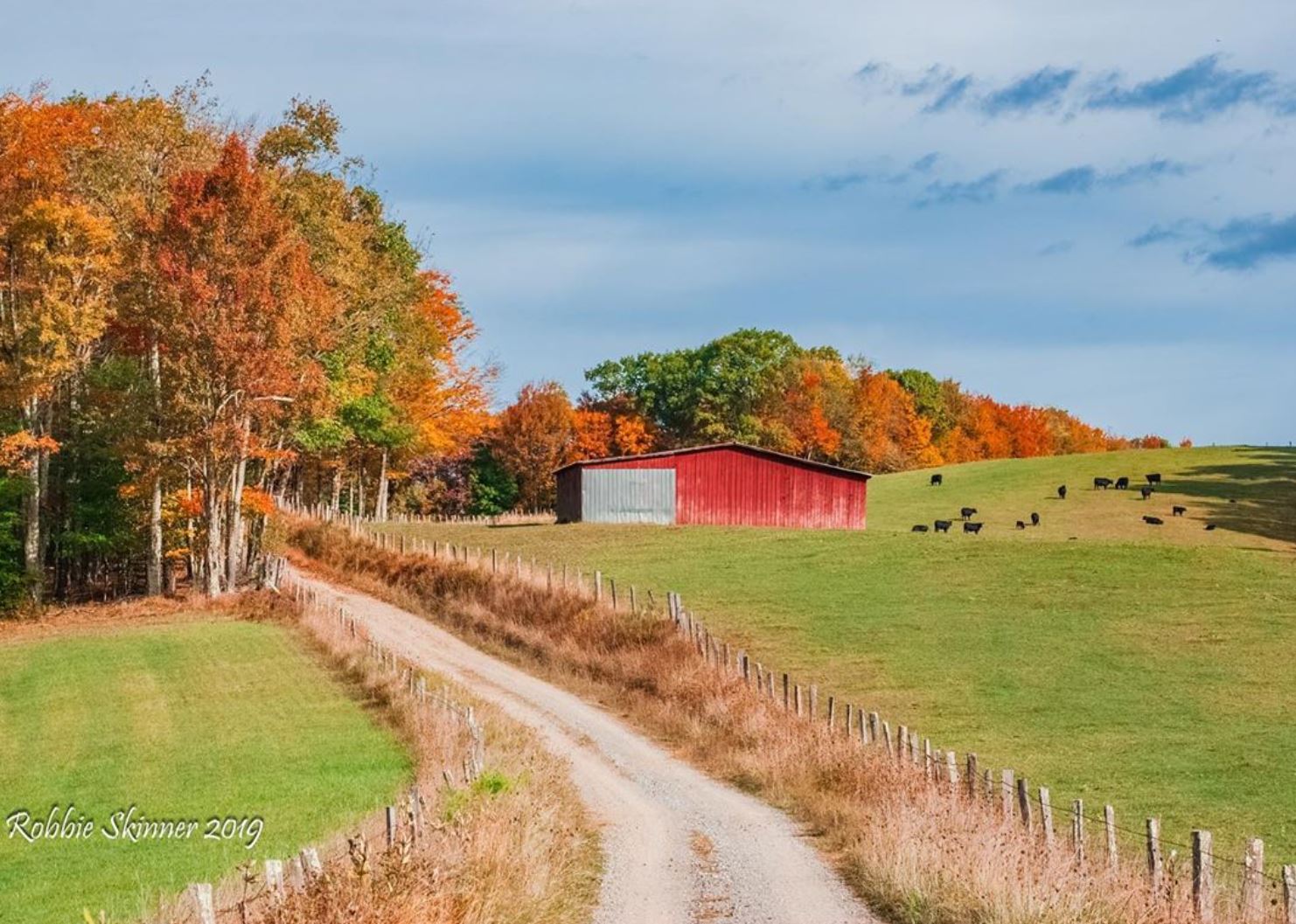Sully, West Virginia
Families have come and gone in the Randolph County community of Sully, but farm living and the beautiful views have stayed the same. Although there was never a large industry in Sully, at one time there was a certain amount of prosperity. For many in the small town that lies on the outskirts of Jenningston, a timber-fueled town, Sully was a haven during the Great Depression because of the population’s strong farming heritage.
“If it hadn’t been for my grandfather and his farm we wouldn’t have made it through the Depression,” said Sis Schoonover, a Jenningston native who lived in Sully with her grandparents for a period of time. Schoonover’s grandfather, Walter Kerns, had a farm and raised buckwheat and wheat for flour, corn for cornmeal, cattle, pork, apples, berries, and produce. He had turkeys, chickens, and even bees for honey. Everything that was raised was used. When Schoonover lived on the farm she pitched in and helped with the chores. “I had to hoe the corn,” she said. “And I was always real bad about cutting the corn off the plant. My grandfather would yell at me for that so I’d stick the corn in the ground and hope no one noticed.” Working in the field wasn’t the only work she had to do. She can remember making lye soap from pork skin.
Hugh Thompson, a Sully native, said his family farmed as well. Thompson had four brothers and five sisters and that meant the Thompsons had plenty of farm hands, but also plenty of mouths to feed. For Thompson, growing up on the farm meant growing up doing a lot of hard work. “I grew up on the farm and we didn’t have much time to play except at school,” he said. But when there was free time, they’d either play a round of hide and seek or a ball game.
Schoonover, who had several aunts but only one uncle, found out quickly that being a girl was no excuse when it came to working out in the fields. Gender did not matter, and everyone pitched in to help. “On the farm, the girls worked as hard as the boys,” she said, noting that working on a farm in Sully meant dealing with the local critters like rattlesnakes. She could remember picking berries and there would be rattlesnakes everywhere you looked. Her grandma saw one in the back of the spring house where they used to keep stuff that needed to stay cool and she killed it with a switch. You grew up not being afraid of them. They were an everyday nuisance.
During World War II, there were approximately 16 families living in Sully, but today there are only about four. Some went to war and some to the factories, but most never returned to the small community. At the time of the war, there were two school houses – kindergarten through eighth grade and a high school with ninth and tenth grades – a post office, and a general store. Teachers at the school often had long walks to the school house and in the winter there were many days school was cancelled. In the lower grades there was between 40 and 50 kids and in the upper grades only about 15 to 20. In that day, it was considered a decent sized school.
Today, the only thing left of the former prosperity is an old church building and a post office that was converted into a private home. The farming tradition still remains. Sully is such a beautiful area, that Thompson seems to think it will soon be filled with homes because of it’s close proximity to Canaan Valley. He’d like it to stay the same as it was when he was a kid and right now it’s not much different, but you can start to see houses along the far ridges that weren’t there 40 years ago.
If you get a chance, we recommend taking a scenic drive through the mountains to visit Sully. It is so beautiful and provides a different perspective of the countryside. Wintertime is hard due to its elevation and some of the roads even close because of the snow drifts.
Article Credit, 2015: Leah Dietz, Staff Writer for The Intermountain
